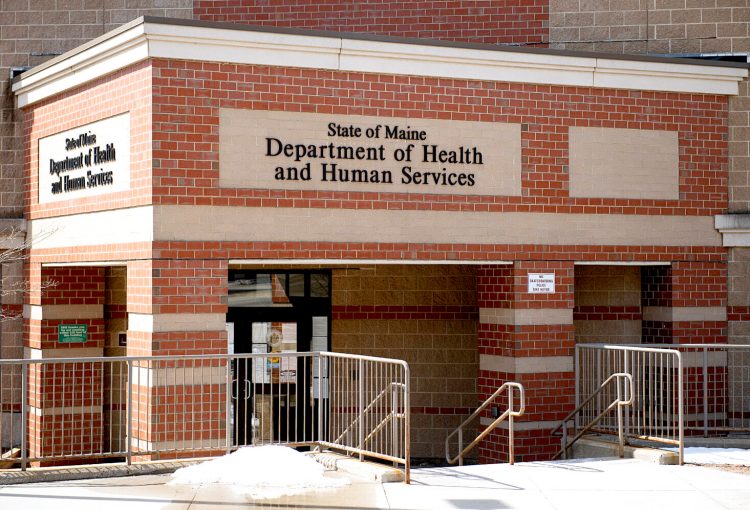The largest union representing state employees questioned the Mills administration’s efforts to protect the health of state workers Wednesday after state officials disclosed that an employee in the Lewiston office of the Maine Department of Health and Human Services has tested positive for coronavirus.
“There’s been no real top-down plan,” said Dean Staffieri, president of the MSEA-SEIU Local 1989, which represents about 14,000 state and municipal employees. He said union officials are urging the administration to allow more state workers to take paid administrative leave, if in non-essential jobs, or to telecommute.
Staffieri said workers are calling the union daily and asking why they must work in offices where they may be exposed to the virus.
“People are saying, ‘We don’t get it. Why are we here when we don’t think we are essential,’ ” Staffieri said.
State employees connect the public to services such as food assistance and unemployment insurance that are more important than ever now, said Lindsay Crete, Mills’ press secretary, in a prepared statement.
Crete said the administration is taking steps to increase physical distancing in state offices and allowing more employees to work from home. State agencies are also limiting, as much as possible, in-person contact with the public.
“Gov. Mills appreciates the union’s concern for the health of State employees no matter where they work,” Crete said in the statement. “She cares deeply about it, too, which is why she is working every day to protect their health and ensure that State government can meet its obligation to the people it serves.”
Dr. Nirav Shah, director of the Maine Center for Disease Control and Prevention, announced the DHHS employee’s case Wednesday during a daily media briefing with DHHS Commissioner Jeanne Lambrew. Maine now has 142 confirmed cases of coronavirus infection.
Shah said the CDC is investigating the case.
“Our top priority in these situations is always to ensure the health and safety of the public, as well as our employees, within any unit of state government,” he said.
Lambrew said she closed the Lewiston office, which houses about 60 state workers, early Wednesday.
In a DHHS news release issued later, Lambrew said only about 25 percent of the workforce was in the office on Tuesday and they had served only four clients that day. She said the affected worker did not have regular contact with the public.
“I followed protocols developed for all state employees and communicated last week to ensure that those employees, their partners, the providers in the community, and mostly the people we serve are safe,” Lambrew said in the statement. “My heart goes out to my workers and the workers throughout Maine, the families throughout Maine, who have been affected, because this does hit home.”
Lambrew said in the briefing that about 70 percent of state workers are already working from home, and she expected that to increase to about 80 percent soon. But Staffieri, who once worked in the Lewiston DHHS office, was skeptical of those figures.
“We don’t have any numbers to show us that is the case,” he said.
Staffieri also questioned the wisdom of leaving other DHHS offices open, including those that handle requests for public assistance benefits like Medicaid, Temporary Assistance to Needy Families and Supplemental Nutrition Assistance programs, in Portland, Bangor and other locations.
The union filed a class action grievance against the administration for all four of its bargaining units Tuesday, demanding that employees be notified of potential exposure to someone who is infected; closing and decontaminating affected work sites while paying displaced workers; and paying employees administrative leave if they become ill from a workplace-related exposure to the virus.
DHHS highlighted steps it has taken to support physical distancing in its 16 regional offices, such as opening only to accept paperwork drop-offs during limited hours, and encouraging clients to use online systems for filing applications and reviews for benefits programs.
Staffieri said state workers understand the services they are providing are critical to the well-being of many Maine people, but if state employees become ill, especially those who work in critical roles – such as child protective services – then the state will be facing an additional crisis.
“What we are really trying to do here is advocate for the public, these state workers and the workers’ families,” Staffeiri said.
Send questions/comments to the editors.




Success. Please wait for the page to reload. If the page does not reload within 5 seconds, please refresh the page.
Enter your email and password to access comments.
Hi, to comment on stories you must . This profile is in addition to your subscription and website login.
Already have a commenting profile? .
Invalid username/password.
Please check your email to confirm and complete your registration.
Only subscribers are eligible to post comments. Please subscribe or login first for digital access. Here’s why.
Use the form below to reset your password. When you've submitted your account email, we will send an email with a reset code.